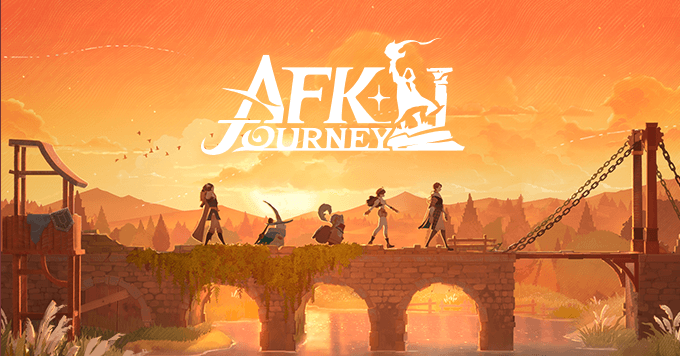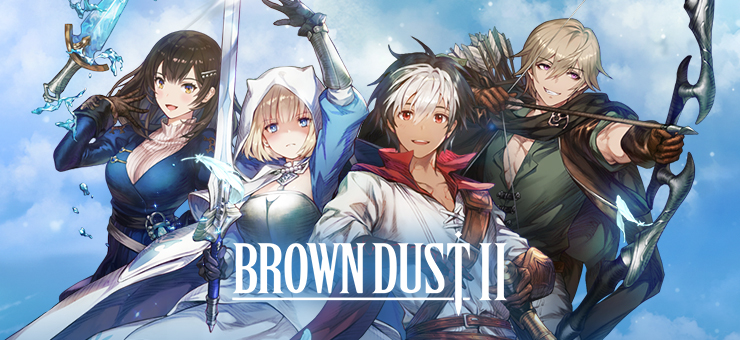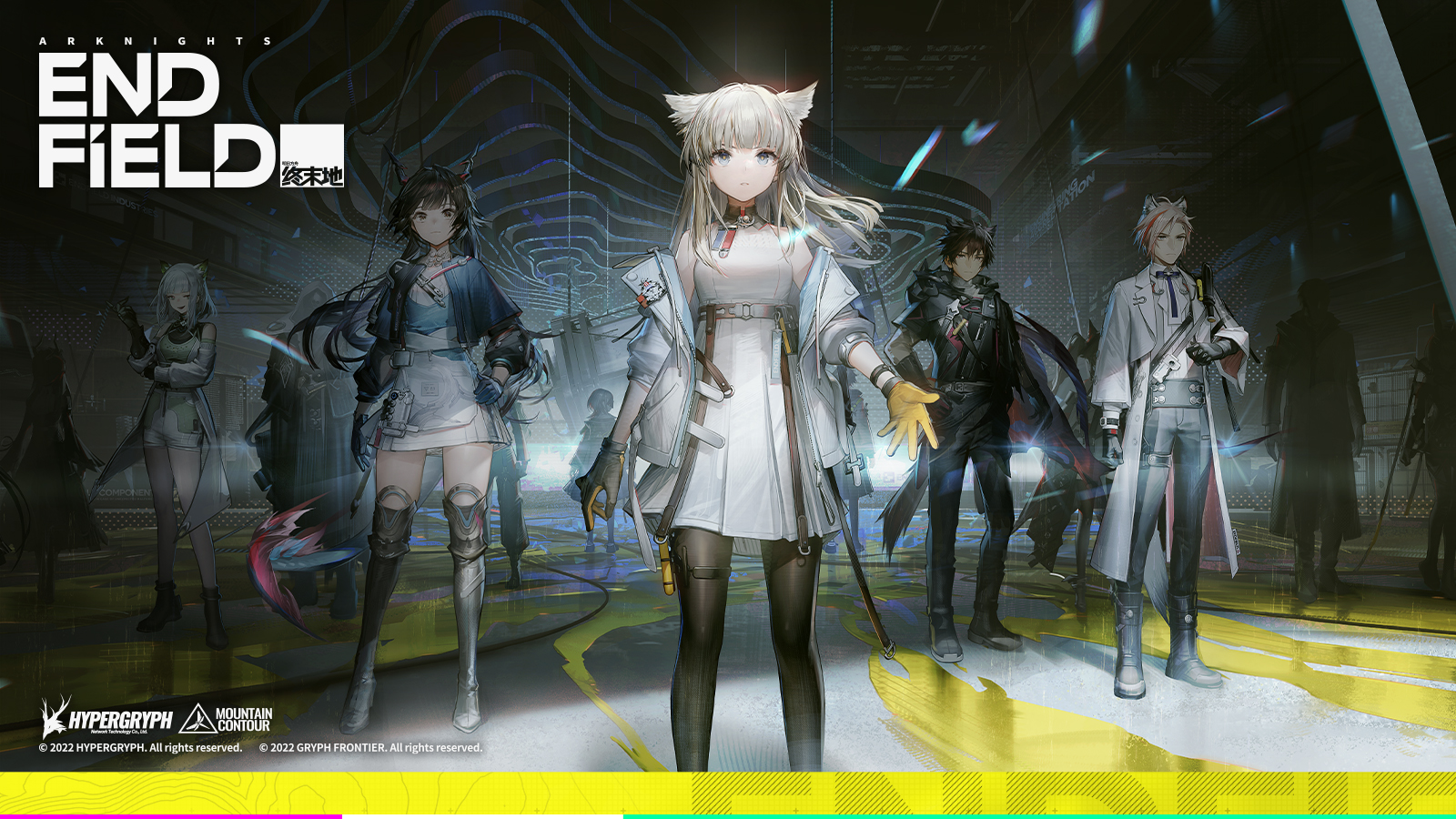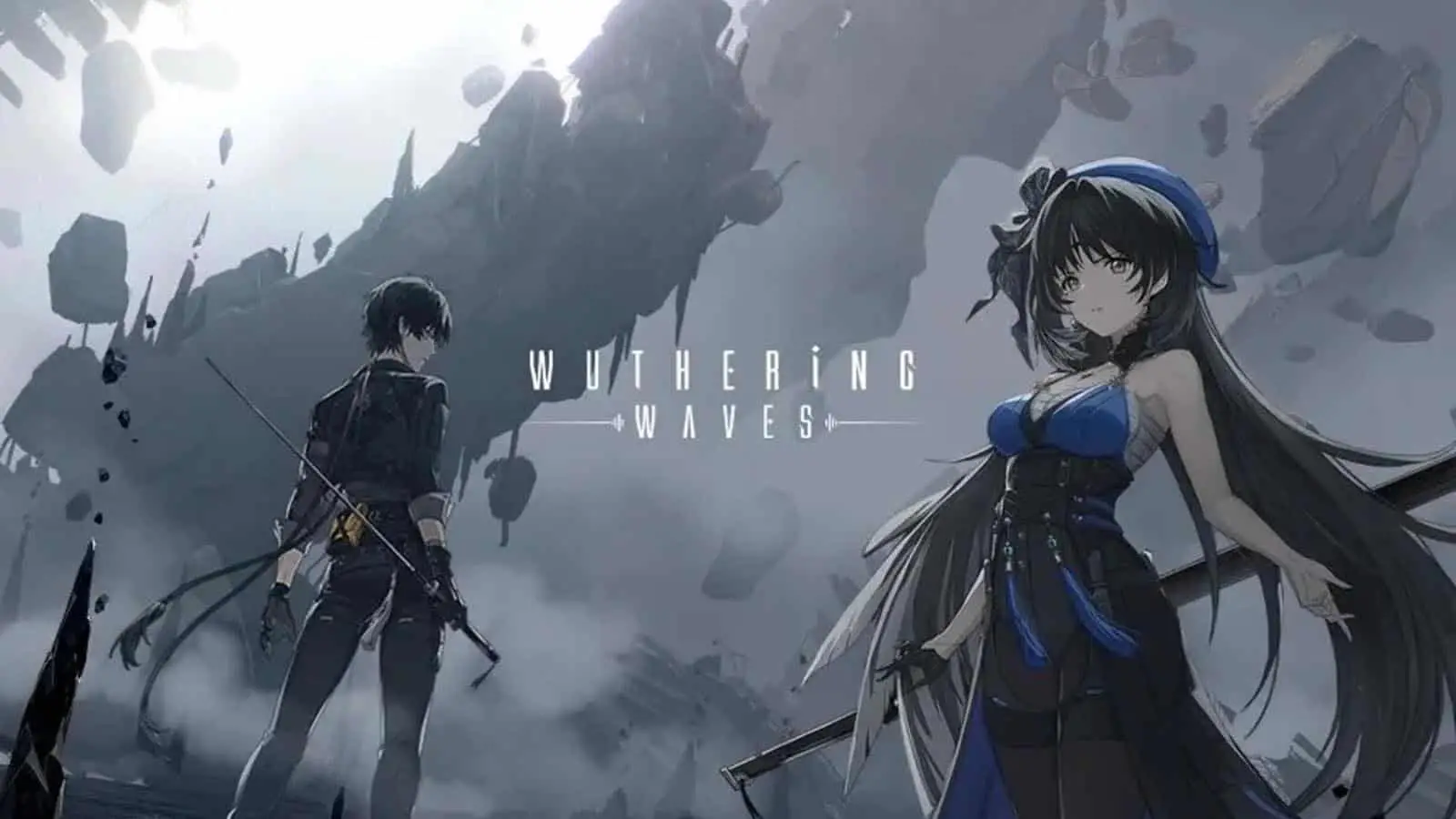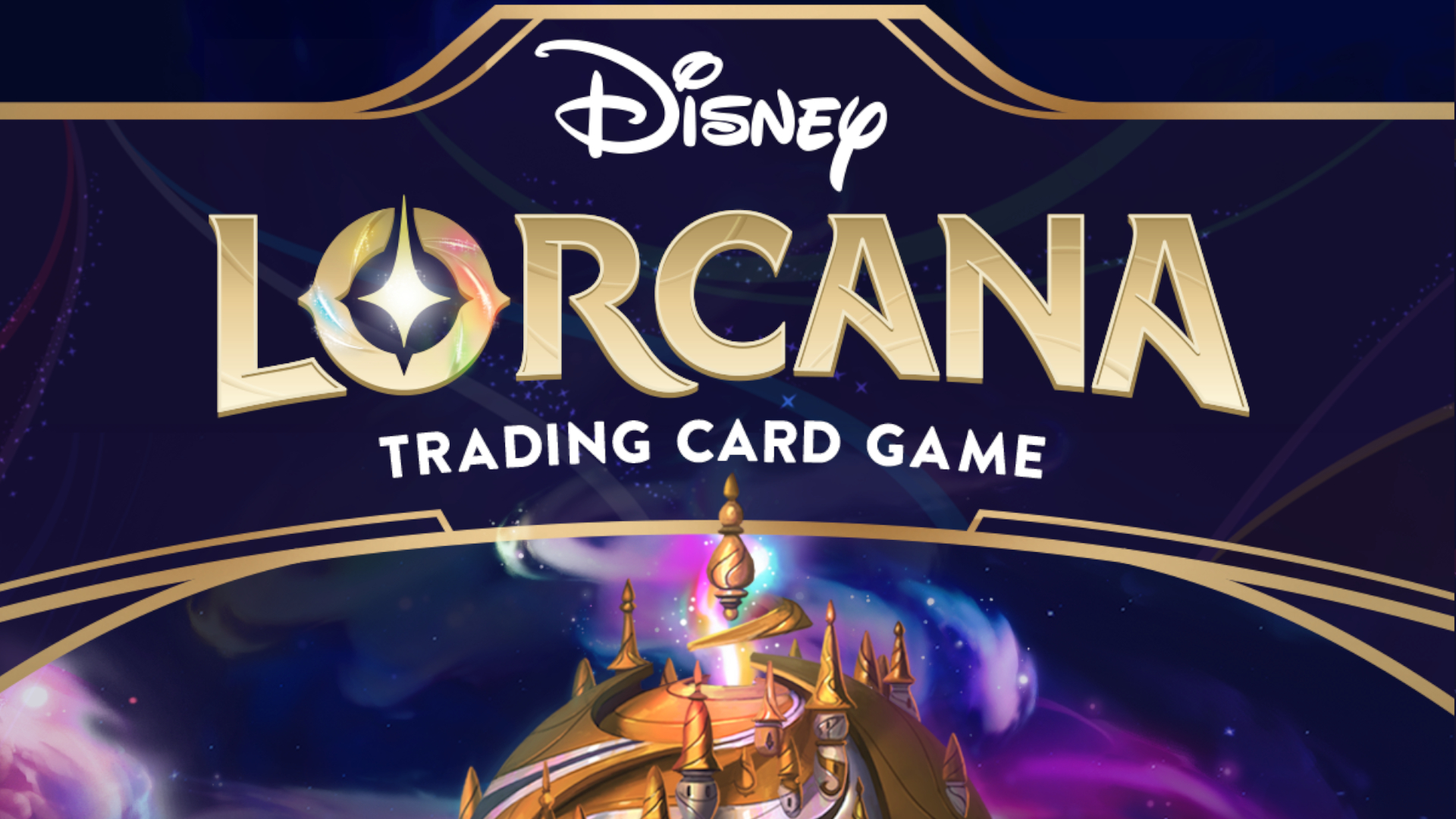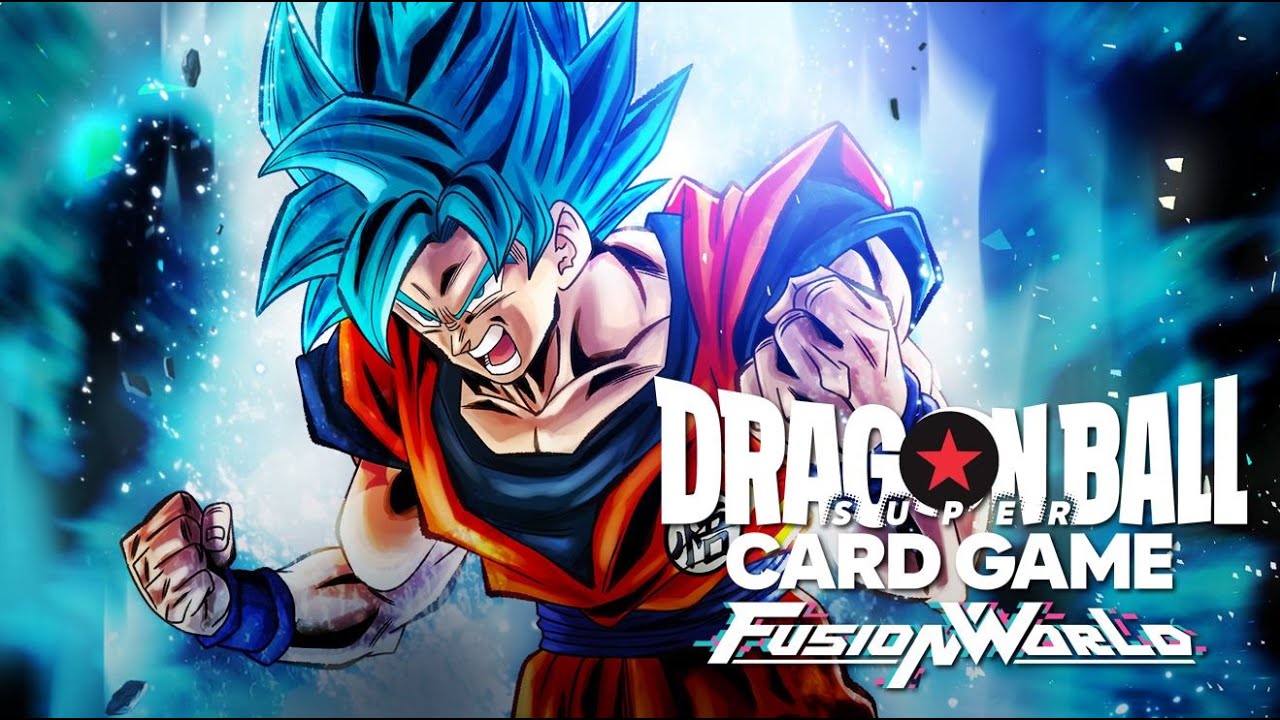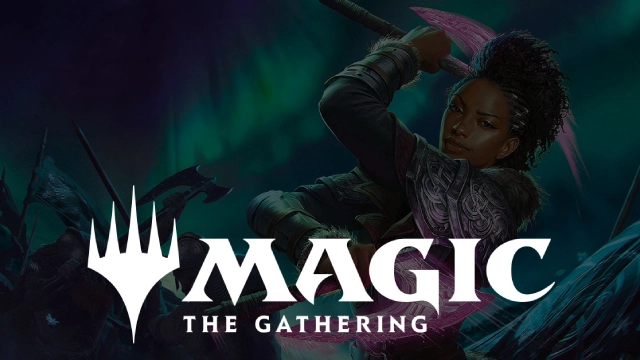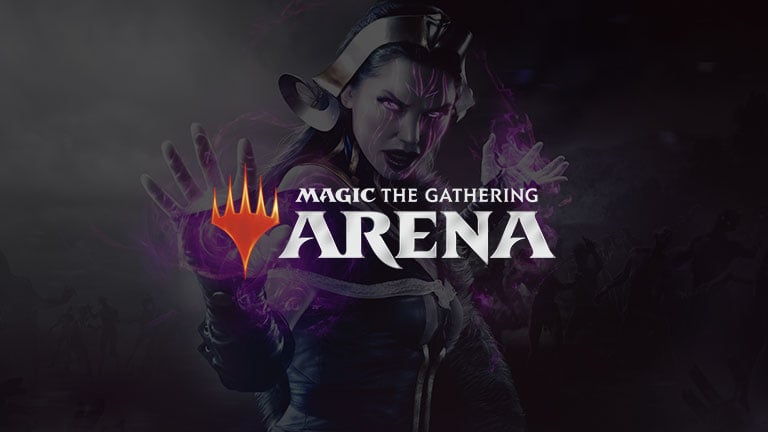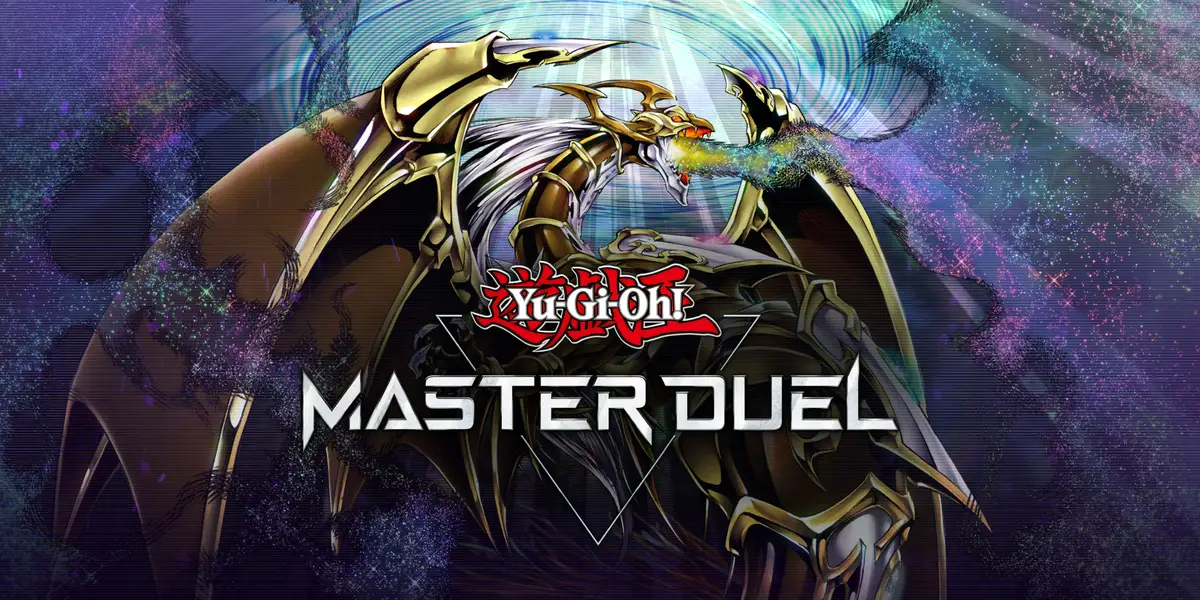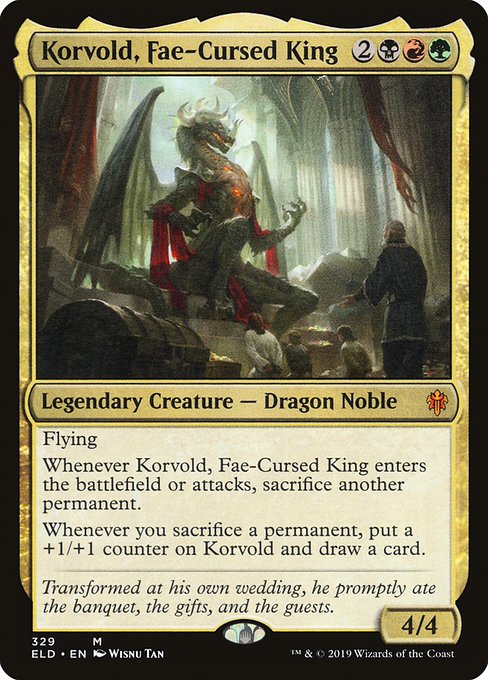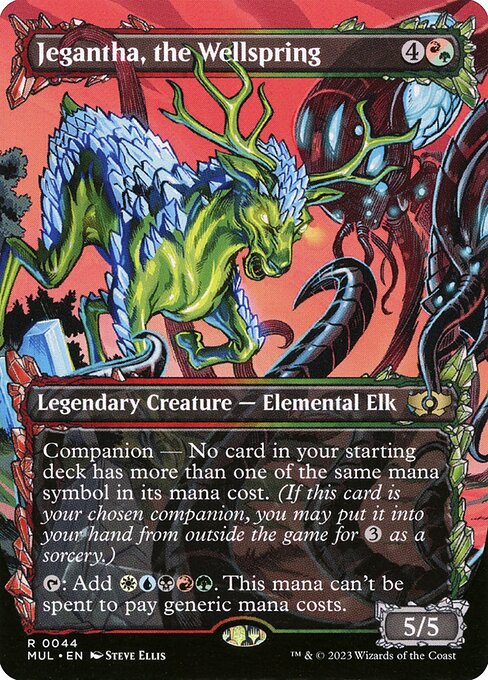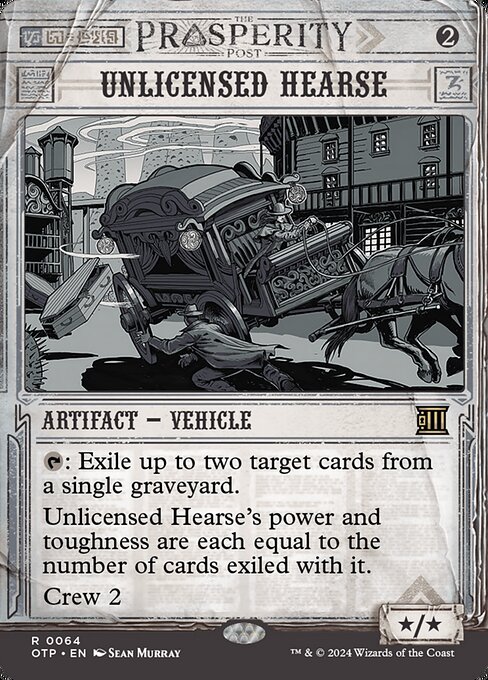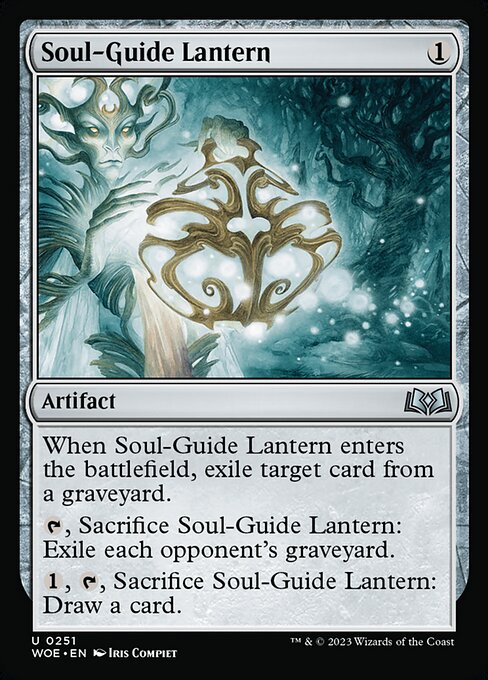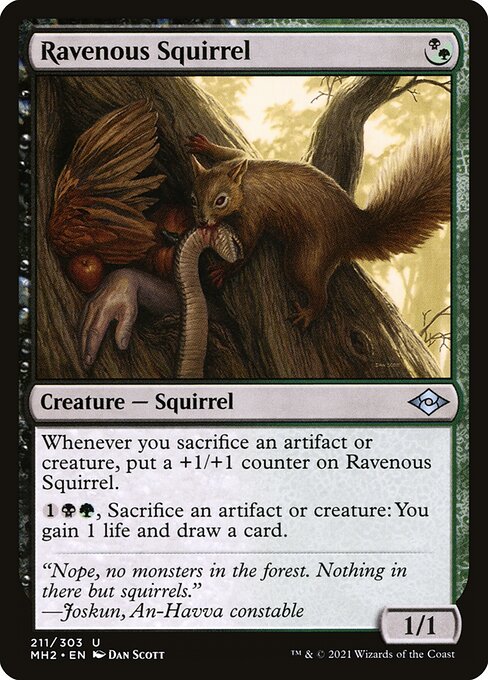Table of Contents
Hey everyone! Today I’m going to be covering my Jund Revels sacrifice deck in Historic which I recently used to hit rank #1 with on the Arena ladder.
Cauldron Familiar + Witch's Oven + Trail of Crumbs was the best way to play sacrifice in Historic for a really long time, but with the recent nerf to A-Cauldron Familiar, I feel like that engine has lost a lot of it’s resilience. I’ve been testing out a bunch of different sacrifice shells since the nerf, and this has felt like by far the most powerful to me.
I’ve also put up a video on my YouTube channel with with 5 matches of game play if you’re interested in seeing the deck in action.



Companion
Creatures (28)
Instants (4)
Enchantments (4)
Lands (24)
60 Cards
$378.34
Sideboard
15 Cards
$31.89
Main Deck:
Cabaretti Revels: This is a really interesting card to build around; in a format as fast as Historic, there’s definitely a big tempo loss in taking a turn off from committing to the battlefield in order to cast this, which can be punished by both fast aggressive decks and control decks alike. For this reason, it’s crucial that you start getting a lot of value off Cabaretti Revels immediately, which requires you to meet a few deckbuilding requirements.
You need to ensure you have a high creature count (otherwise you’ll end up in situations where you have Cabaretti Revels but no creatures to trigger it, or you might run out of creatures to put into play off it), you need the deck to want a high density of creatures in play, you need those creatures to be fairly evenly split across the mana curve, you want there to be good synergy between those creatures, and you want to ensure the deck has good quality 1-drops (as that’s typically the most common creature you’ll hit).
Sacrifice ticks all of these boxes since it’s a high-synergy creature deck that always wants a critical mass of creatures on the battlefield to enable the sacrifice synergies, so it’s the perfect fit for this archetype. I’ve also ensured that the deck has enough creatures spread fairly evenly across the curve, and good quality 1-drops that you’re always happy to see hit the battlefield.
Cabaretti Revels is a really strong value engine that constantly ensures we have enough sacrifice fodder as well as helping us to dig for sacrifice outlets like Priest of Forgotten Gods and Woe Strider too.
The Sac Outlets:
Priest of Forgotten Gods: This is such a strong card against opposing creature deck. It does need to survive a turn cycle to activate, but if it does, it acts as repeatable removal every turn.
It’s especially good in conjunction with Priest of Forgotten Gods will trigger the Mayhem Devil, allowing you to ping down their smaller creatures before they choose which creature to sacrifice. This often allows you to set up a sequence where you can pick off their smaller creatures and force them to sacrifice their more important ones.
The card advantage it provides helps ensure we keep drawing more sacrifice fodder to be able to keep activating Priest of Forgotten Gods and the mana it provides helps us to ramp, as well as enabling us to cast multiple spells in a turn.
It also works really well with Cabaretti Revels since Cabaretti Revels will repeatedly be putting additional creatures onto the battlefield which we can use as sacrifice fodder for Priest of Forgotten Gods, and we can potentially hit Priest of Forgotten Gods off Cabaretti Revels by playing more expensive creatures which usually sets us up for a really powerful next turn.
Woe Strider: This is another really important sacrifice outlet and the fact that it’s free to activate is really powerful, especially alongside Mayhem Devil and Korvold, Fae-Cursed King.
The token it produces is great as additional sacrifice fodder that you can also use to chump block against aggressive decks and the scrying is great at ensuring you don’t miss land drops, as well as helping to dig for what you need. Additionally, the ability to sacrifice for free enables you to get value from your creatures in response to removal, or when you chump block.
If you have a Mayhem Devil in play alongside Woe Strider, you can sacrifice your creatures at any time to deal 1 damage to any target which is great at killing creatures; it also gives you great reach in the late game since you can sacrifice your whole board in order to deal direct damage to the opponent to finish them off.
If you have a Korvold, Fae-Cursed King in play alongside Woe Strider, you can sacrifice your creatures in order to both grow Korvold, Fae-Cursed King and drawcards which can enable you to deal lethal from a high life total if they don’t have any blockers with flying.
Finally, the escape on Woe Strider means it’s a recursive threat which provides a great mana sink if you flood out, have excess mana from a Priest of Forgotten Gods trigger, or just need a sacrifice outlet or big blocker. It also still triggers Cabaretti Revels when played from the graveyard which works as a great repeatable lategame engine against decks with a lot of interaction.
Korvold, Fae-Cursed King: This is the most powerful card in the deck and will almost always run away with the game if the opponent doesn’t kill it quickly.
If this survives it will produce an insane amount of card advantage and grow very quickly; one of sacrifice’s traditional weaknesses is that it can take a while to actually finish the game which gives certain decks like control and combo time to take over the game, but Korvold, Fae-Cursed King is great at suddenly turning the corner and closing the game out fast.
There are also a decent number of decks in the format that try to apply pressure with flying creatures (eg. Izzet Phoenix, Esper Greasefang, Selesnya Angels etc) and Korvold, Fae-Cursed King is great at stabilising against those sorts of decks since it will usually outscale their attackers.
We do have multiple ways to ramp into Korvold, Fae-Cursed King to get it into play quickly which is really strong, but you do need to be mindful that you have to sacrifice a permanent when it enters play which can be annoying if you have to sacrifice a land or an important creature.
Korvold, Fae-Cursed King also works very well Cabaretti Revels since it will seek a creature into play before we trigger the Korvold, Fae-Cursed King to sacrifice which gives us more options and provides additional sacrifice fodder for following turns. On top of that, we’re likely to draw a lot of creatures off Korvold, Fae-Cursed King, most of which will trigger Cabaretti Revels to put more creatures into play. which will very quickly flood the board, so Korvold, Fae-Cursed King plus Cabaretti Revels produces an insanely strong late-game.
The Other Cards:
Mayhem Devil: This is one of the most important cards in the deck since it turns all of your sacrifice synergies into additional damage which you can either use to kill creatures or planeswalkers, or deal direct damage to the opponent.
This is particularly strong as a lot of the most powerful and efficient creatures in the format right now aren’t that big so can be picked off by Mayhem Devil, and the direct damage enables you to kill the opponent without needing to attack which is a huge advantage and means the opponent needs to be constantly careful about their life total unless they have a lot of incidental lifegain.
Unlucky Witness: This is great sacrifice fodder that ensures you don’t run out of gas and helps dig for whatever you need, which makes it valuable at any point in the game.
In the early game this is great to sacrifice to Priest of Forgotten Gods or Woe Strider to dig for land drops or cheap spells. Later in the game it can help us dig for our more powerful threats like Mayhem Devil and Korvold, Fae-Cursed King, while still enabling our sacrifice synergies, which makes it a great card to hit off Cabaretti Revels.
Do be aware that you can only cast the cards you exile until your next end step, which means if you’re sacrificing it during your turn before your end step, you should try and sacrifice it with open mana or at least before playing your land for turn if possible so that you’re likely to be able to play the cards you hit (there will be some situations where this isn’t possible but you should still sacrifice it if you have to, even if you won’t get the value eg. if you need to activate Priest of Forgotten Gods to kill a creature).
If you sacrifice it or it dies in combat during your opponent’s turn though, you still get to play the cards you exile during your next turn, which is usually a good play if you’re trying to dig towards something.
Gilded Goose: Even though we’re not playing the Food package, Gilded Goose is still really important in this deck for a number of reasons.
Firstly, the ramp it provides is great – we have 12 important 3 drops and being able to ramp into them on turn 2 is great (especially Cabaretti Revels). Additionally, Gilded Goose is one of the ways we have of ramping into an early Korvold, Fae-Cursed King which is a great way to apply a ton of pressure early on.
It also fixes mana which is important if you don’t have exactly the right colours you need and sacrificing food to produce mana or gain life provides triggers for both Mayhem Devil and Korvold, Fae-Cursed King (as well as triggering revolt for Fatal Push).
The ability to produce food gives you another mana sink and the repeatable life gain is very useful against aggro and other decks that have good reach in the late game like Burn and Phoenix. Finally, it also gives us another way to block opposing flyers in addition to Korvold, Fae-Cursed King so it provides a lot of utility.
Prosperous Innkeeper: Similar to Gilded Goose, this is another way we can ramp into Korvold, Fae-Cursed King (or just cast multiple spells in a turn which is very strong with Cabaretti Revels in play) that also provides a body we’re happy to sacrifice.
The life gain it produces is also very relevant in a lot of matchups, and sacrificing the treasure gives us a way to trigger Mayhem Devil, Korvold, Fae-Cursed King, and revolt for Fatal Push at instant speed.
Fatal Push: Priest of Forgotten Gods and Mayhem Devil are both nice as creatures that can act as removal, but they can both be slow to set up, and can be awkward at trying to deal with bigger creatures too, so Fatal Push is really necessary as a way to kill important early threats.
I tried a build of this deck without Fatal Push in the main deck, but I regularly found myself losing to powerful early threats like Kor Spiritdancer, Symmetry Sage, Giada, Font of Hope, Dreadhorde Arcanist etc. so Fatal Push really helps to deal with those early creatures which slows the opponent down and then enables you to set up your sacrifice synergies to run away with the game.
Unlike a lot of decks, you can trigger revolt really easily in this list which means it also scales pretty well into the late-game. This is great in conjunction with cards like Priest of Forgotten Gods and Mayhem Devil at having these huge tempo-swinging turns where you take out most of the opponent’s creatures.
Jegantha, the Wellspring: This is essentially free to run as a companion, but it’s very useful since we often have spare mana from something like a Priest of Forgotten Gods activation which we can use to put Jegantha, the Wellspring into our hand.
It also provides us with a good option if we ever end up flooding out, or we just need a creature in order to trigger Cabaretti Revels. On top of that, a lot of decks can struggle to deal with a 5/5 creature so it can often stonewall the opponent’s attacks if you need to buy time.
Mana Base:
24 lands is higher than normal for a sacrifice deck, but this particular build has a higher curve with a lot of 3-drops so I felt like you needed a higher land count to ensure you hit your third land on time consistently (running 4 Korvold, Fae-Cursed King also incentivizes a higher land count even if we do have ways to ramp).
In terms of the lands themselves, I’ve gone for all dual lands, one basic (as a concession to Field of Ruin), and one Phyrexian Tower. Typically, sacrifice decks want more utility lands, but this build has more pressure on the mana base since we need all 3 colours on turn 1 as consistently as possible for our 1-drops which is really difficult to achieve if you’re running a lot of utility lands.
Having said that, I do really like the single copy of Phyrexian Tower as another way to ramp into Korvold, Fae-Cursed King, produce extra mana, and provide sacrifice triggers too.
Sideboard:
4 Tenacious Underdog & 4 Ob Nixilis, the Adversary: This is here predominantly for control which is definitely the toughest matchup. Your main deck is almost pre-sideboarded against creature decks which means you have quite a few cards in the main deck that aren’t against control.
I’ve been really impressed with Ob Nixilis, the Adversary in the sideboard of sacrifice decks against control since it’s very difficult for them to interact with favourably, and it also dodges Farewell which is a big deal.
The main reason control is a rough matchup for sacrifice is because sacrifice typically takes longer to close the game out than aggressive decks which gives control more time to stabilise, and a card like Farewell basically undoes everything you’ve set up even if you’re really far ahead. Ob Nixilis, the Adversary survives Farewell as well as all other sweepers, applies constant pressure to their life total, and threatens to climb to the ultimate if it’s ignored.
Since I’m typically trimming cheaper cards in this matchup (Fatal Push, Priest of Forgotten Gods, Prosperous Innkeeper etc.), I wanted to ensure that the other cards I brought in against control were cheap creatures as opposed to more non-creature spells like Thoughtseize. If you don’t, you’ll likely end up in situations where you won’t have a creature in play to casualty with Ob Nixilis, the Adversary on turn 3 (Gilded Goose already doesn’t work since it has 0 power), you won’t have creatures to trigger or put into play with Cabaretti Revels, and you often just won’t have enough pressure in the early game which is the main way you’ll end up losing to control.
For those reasons, Tenacious Underdog felt like the best option, since it’s an aggressively slanted 2 drop (so it can apply pressure, and is great to sacrifice to Ob Nixilis, the Adversary) that’s also recursive. The blitz on Tenacious Underdog is great since it provides a repeatable way to kill Planeswalkers, that also draws us a card and triggers Cabaretti Revels each time it’s cast.
2 Outland Liberator: This is here as a way to deal with problematic artifacts and enchantments while also a creature so it triggers Cabaretti Revels and can be put into play off it too.
This is very important against decks like GW Enchantress, other sacrifice decks running Oni-Cult Anvil, artifact ramp decks, etc. I also like bringing this in against control as a way to deal with cards like Portable Hole, Shark Typhoon, and Search for Azcanta (plus it will flip to night fairly frequently since control often pass with mana open).
1 Unlicensed Hearse & 2 Soul-Guide Lantern: This is here as graveyard hate for matchups like Izzet Phoenix and Esper Greasefang. These are both decks that can swarm the battlefield faster than we’re able to deal with with our removal, so they’re very important at shutting off the most problematic parts of those decks.
I like the 1/2 split here – the first copy of Unlicensed Hearse is the best graveyard hate available but it is a card that has diminishing returns on any additional copies you draw whereas you can cycle away Soul-Guide Lantern if you draw multiples, and it also provides a sacrifice trigger too.
1 Maelstrom Pulse: This is great as just additional generic removal to deal with permanents that are difficult to kill otherwise. Without this in the sideboard, we’d have no way to kill something like Serra's Emissary naming creature so I felt like a single copy was necessary, and we can dig for it with Korvold, Fae-Cursed King and Woe Strider.
There are also a lot of other matchups where you would like an extra piece of interaction and so Maelstrom Pulse is a card I commonly bring in as an extra way to kill creatures, planeswalkers, enchantments etc.
Notable Exclusions:
Ravenous Squirrel: When I first started brewing around Cabaretti Revels in sacrifice, I was initially thinking of running a build with Ravenous Squirrel as the only 1-drop since it’s so powerful if you can enable it which would guarantee you’d hit it off Cabaretti Revels whenever you cast a 2 mana creature.
The issue with it in this deck, however, is that you really want to be running 1 drops that you’re always happy to sacrifice, and there were a lot of situations when I was running Ravenous Squirrel where I’d have to sacrifice it to Priest of Forgotten Gods in the early game which isn’t what you want to be doing with it.
I also tried a build where I was running Ravenous Squirrel in addition to Gilded Goose and Unlucky Witness, but it was in the place of Fatal Push (which ended up being a much more important card so I’m not sure there’s room in the deck for Ravenous Squirrel as well), and I kept running into issues where I had Cabaretti Revels and a bunch of 1 mana creatures which don’t provide any value off Cabaretti Revels so it didn’t end up making the cut.
I definitely think there could be a Cabaretti Revels sacrifice deck built around Ravenous Squirrel, but it doesn’t really fit into this build very cleanly.
Yawgmoth, Thran Physician: I started out with a build that was running 2 Yawgmoth, Thran Physician and 2 Korvold, Fae-Cursed King at the top end, but the more I played, the less I liked Yawgmoth, Thran Physician overall. It is definitely a powerful card, and it does have a lot of great synergies alongside Cabaretti Revels, but it just felt like it was making the deck better in ways it was already good, and didn’t really help shore up any of it’s weaknesses.
Similar to Priest of Forgotten Gods and Mayhem Devil, Yawgmoth, Thran Physician is very good against small and medium sized creatures, but it’s also quite slow at setting that up in the first place. This means it suffers from a lot of the same weaknesses of Priest of Forgotten Gods where it’s great if the opponent is slower to apply pressure, but really struggles against creatures that scale in the early game like Kor Spiritdancer, Giada, Font of Hope, Ledger Shredder, etc (plus paying life to activate adds up in certain matchups, especially if the opponent has had a fast aggressive start before we were able to get Yawgmoth, Thran Physician into play).
Additionally, it doesn’t really apply pressure itself which means the deck in general is very slow at turning the corner and makes the bad matchups against control and combo even worse. This was one of the big appeals of going for 4 Korvold, Fae-Cursed King instead, since it gives the deck a very explosive way of turning the corner.
Finally, you also lose access to Jegantha, the Wellspring if you run Yawgmoth, Thran Physician – this certainly isn’t a deal breaker, but it’s definitely another downside to running it.
Best of 1:
This is a deck that’s quite difficult to pivot into Bo1 because of the existence of the all-in combo decks like Dragonstorm, Greasefang and Reanimator, which will all be tough matchups. You could potentially put some graveyard hate in the main deck, but that will just make the deck less consistent in every other matchup.
You could also run discard spells like Thoughtseize in the main deck to help in those matchups and control, but I don’t think you can afford to cut Fatal Push for it, and any creatures you cut will lower the effectiveness and consistency of Cabaretti Revels which is an issue.
Overall, if I was to play this deck in best of 1, I’d probably run the main deck as it is for maximum consistency overall, but the all-in combo decks will be tough matchups.
Sideboard Guide:

Izzet Phoenix:
| In | Out |
|---|---|
| +2 Soul-Guide Lantern | -4 Cabaretti Revels |
| +1 Unlicensed Hearse | |
| +1 Maelstrom Pulse |
This matchup is all about stabilizing – you’ll typically win the long game, especially if you can get a Korvold, Fae-Cursed King into play, so it’s important to kill their early threats like Symmetry Sage and Ledger Shredder as quickly as possible.
The graveyard hate is great at shutting off Arclight Phoenix (which is typically the biggest problem since it trades very favorably with your single-target removal) and delirium (which is great at shutting off damage from Dragon's Rage Channeler as well as stopping their Unholy Heat dealing 4 damage).
If you play Korvold, Fae-Cursed King when the opponent has delirium, the opponent can kill it with Unholy Heat with the sacrifice trigger on the stack, so try and set up a way to sacrifice something at instant speed in order to play around it.
Cabaretti Revels isn’t that effective in this matchup since their deck can take real advantage of you taking the turn off developing to the board to cast it and most of the creatures you hit off it can’t block their flyers either so we cut it here.
Azorius Control:
| In | Out |
|---|---|
| +4 Tenacious Underdog | -4 Fatal Push |
| +4 Ob Nixilis, the Adversary | -3 Priest of Forgotten Gods |
| +2 Outland Liberator | -3 Prosperous Innkeeper |
| +1 Maelstrom Pulse | -1 Korvold, Fae-Cursed King |
This is a tough matchup game 1, but you have a lot of tools post-sideboard to improve the matchup. The key here is to apply as much pressure as quickly as you can so don’t keep slow hands. Getting Ob Nixilis, the Adversary or Cabaretti Revels into play will put you at a big advantage since they both apply a lot of pressure and are more difficult for the opponent to interact with.
You want to get in for damage wherever you can as you have good reach in the late game, so you can often deal the final points of damage with something like Mayhem Devil, Ob Nixilis, the Adversary, or Tenacious Underdog even if the opponent has stabilized.
I like keeping in one copy of Priest of Forgotten Gods as a hedge against cards like Baneslayer Angel which are very difficult to kill otherwise (if the opponent does board these in, then it might be worth keeping in more Priest of Forgotten Gods instead of Prosperous Innkeeper) and it can also pick off tokens from The Wandering Emperor and Shark Typhoon.
Korvold, Fae-Cursed King is a very strong card in the matchup, but I think it’s important to trim 1 because we’re cutting Prosperous Innkeeper which reduces the amount of ramp, it can lead to clunky slow hands if you draw multiples as well as it being vulnerable to counterspells.
Auras:
| In | Out |
|---|---|
| +1 Maelstrom Pulse | -1 Korvold, Fae-Cursed King |
This matchup is all about playing carefully in the first few turns and keeping their creatures off the board – if you run them out of creatures, their deck basically does nothing. Fatal Push is the best card in this matchup, and you can often pull off devastating turns with Priest of Forgotten Gods and Mayhem Devil too, so it’s generally a good idea to mulligan to early interaction a bit more aggressively.
Even if they do manage to get a creature or two to stick, you have pretty effective ways to stabilize since Gilded Goose and Korvold, Fae-Cursed King can both block flyers so their only real way to force lethal through is with Aether Tunnel.
Do be wary of their protection spells, they’ll most commonly be running Slip Out the Back and Spell Pierce, but Karametra's Blessing is also run sometimes, so be aware of those, especially if the opponent is consistently leaving mana open.
Cabaretti Revels can be very effective in this matchup as a way to dig for Priest of Forgotten Gods and Gilded Goose (as a chump blocker) so keeping a hand with a turn 2 Cabaretti Revels on the play even when you don’t have early interaction can often win you the game.
Rakdos Midrange:
No changes
How you sideboard in this matchup will depend on the exact build the opponent is playing – if they’re on regular Rakdos Midrange with not much graveyard synergies, then the main deck is already very well set up against them.
If they’re playing a Dreadhorde Arcanist version or more graveyard synergies such as Kroxa, Titan of Death's Hunger, then you’ll want to bring in Unlicensed Hearse and Soul-Guide Lantern over Prosperous Innkeeper. If they’re running a very planeswalker heavy version, then you might want to bring in Maelstrom Pulse.
In general, this matchup is great for you since you have so many card advantage engines that will pull you ahead like Cabaretti Revels and Korvold, Fae-Cursed King. They don’t have great ways to gain life which makes them very vulnerable to Mayhem Devil plus Woe Strider in the late game.
Affinity:
| In | Out |
|---|---|
| +2 Outland Liberator | -1 Korvold, Fae-Cursed King |
| +1 Maelstrom Pulse | -1 Prosperous Innkeeper |
| -1 Unlucky Witness |
The main thing to be concerned with in this matchup is Shadowspear on a big creature (usually either a creature equipped with Nettlecyst or a token from Karn, Scion of Urza). Thankfully we have a lot of interaction between Fatal Push, Priest of Forgotten Gods, Outland Liberator, etc. so it’s usually not too hard to stop them from setting that up.
The best cards in this matchup are usually Cabaretti Revels and Korvold, Fae-Cursed King since they really struggle to deal with either of those once they’re in play. Their only way to deal with those is Metallic Rebuke so it’s usually better to try and bait that out on another spell if the opponent is consistently leaving blue mana open.
Outland Liberator and Maelstrom Pulse give us great answers to most of their problematic permanents like Nettlecyst and Shadowspear, but they can also be used to take out the opponent’s removal like Portable Hole or Glass Casket which can often be great, especially if you’re getting something like a Priest of Forgotten Gods back.
Selesnya Enchantress:
| In | Out |
|---|---|
| +2 Outland Liberator | -1 Prosperous Innkeeper |
| +1 Maelstrom Pulse | -2 Fatal Push |
Game 1 we don’t have any way to break the Nine Lives + Solemnity lock so the key there is to try and apply as much damage as quickly as possible. You can also fairly easily beat just Nine Lives on its own if you have Mayhem Devil plus Woe Strider and a wide board since you can deal 9 individual points of damage at instant speed with Mayhem Devil by sacrificing your board.
Post sideboard you have access to Outland Liberator and Maelstrom Pulse as ways to kill Solemnity, which you can dig for with Woe Strider or Korvold, Fae-Cursed King, and then deal 9 instances of direct damage with Mayhem Devil again.
Even though I’ve trimmed on Fatal Push (mainly because it’s essentially a dead card if they have a start with Sterling Grove or Enchantress's Presence), it’s still very important to kill Sythis, Harvest's Hand and Sanctum Weaver as fast as possible to slow them down.
Selesnya Heliod Combo:
| In | Out |
|---|---|
| +1 Maelstrom Pulse | -1 Korvold, Fae-Cursed King |
This matchup is usually pretty good since they struggle to deal with a lot of interaction. You should take out their life gain enablers like Soul Warden as a priority since that will stop them comboing off and will prevent their Voice of the Blessed and Trelasarra, Moon Dancer from growing.
You’ll fairly easily win the long-game in most situations so the most important thing is to be able to kill an early Voice of the Blessed or Trelasarra, Moon Dancer, and to keep them off the combo as the game goes on (often times this will mean playing cautiously and holding up multiple pieces of interaction eg. have a Priest of Forgotten Gods activation plus Fatal Push up at all times to prevent them from winning off of Collected Company).
Soul Warden in particular can pose a problem if they have a life gain payoff since our deck often puts multiple creatures onto the battlefield in quick succession off cards like Woe Strider and Cabaretti Revels which will provide them with a load of lifegain triggers, so kill Soul Warden as fast as possible.
5C Niv:
| In | Out |
|---|---|
| +4 Tenacious Underdog | -4 Fatal Push |
| +1 Maelstrom Pulse | -1 Prosperous Innkeeper |
This is similar to the UW Control matchup, but they tend to run more creature removal, less counterspells, and also have Territorial Kavu and Niv-Mizzet Reborn as threats. This is why I keep Priest of Forgotten Gods in as a way to deal with both of their biggest threats (it’s almost always a good idea to get Priest of Forgotten Gods into play before their turn 5 so that you have an immediate answer ready if they do just go for Niv-Mizzet Reborn on turn 5).
Your card advantage engines in Cabaretti Revels and Korvold, Fae-Cursed King are the most powerful cards in this matchup, both of which are fairly difficult for them to interact with so try and get them into play as fast as possible. Their sweeper of choice is usually Deafening Clarion which is important to be wary of when you’re choosing what to develop to your board.
Similar to UW Control, this is a matchup where you should get in for damage wherever you can since you can often finish them off with Mayhem Devil even after they’ve stabilised. To that end, it’s important to sacrifice your creatures in response to Lightning Helix and try and stop them setting up Territorial Kavu or Niv-Mizzet Reborn plus the life gain off Deafening Clarion in order to stop them gaining life.
Embercleave Aggro (Mono R/Gruul):
| In | Out |
|---|---|
| +1 Maelstrom Pulse | -1 Cabaretti Revels |
This matchup is pretty good overall since you have so much interaction and good ways to chump block. You do need to be wary of Embercleave though as that is a way they can force through a lot of damage, so it’s usually best to kill their creatures as fast as possible.
Korvold, Fae-Cursed King is very difficult for them to attack past, so ramping into that is usually a good idea. It can sometimes be a mistake to take a turn off early to cast Cabaretti Revels if you have other good options since their deck is good at punishing slow tempo.
Don’t underestimate the lifegain from Prosperous Innkeeper and Gilded Goose as a way to stabilise if you’re light on interaction.
Humans:
No changes
This is another good matchup since you have a lot of interaction and they tend to run smaller creatures which you can tag with Mayhem Devil. The fact we’re running a more creature-based build also means we don’t have to worry much about the Esper Sentinel and Thalia, Guardian of Thraben tax either.
You’ll always win the long game so it’s not worth taking any risks or making risky attacks in the early game, just play cautiously, try and stabilize and you’ll usually run away with the game. Having said that, they are capable of some very explosive starts, so don’t keep hands that are slow or don’t have interaction, especially on the draw.
Tips & Tricks:

- If you need to ping a creature with Mayhem Devil in order to kill it and Unlucky Witness is one of the creatures you need to sacrifice, you can set a stop during your end step and sacrifice the Unlucky Witness. This will still kill the creature before your turn ends, but you’ll be able to cast the cards you exile off Unlucky Witness until the end of your next turn.
- If you need to trigger revolt with Woe Strider in order to kill a 3/4 mana creature with Fatal Push during your turn, it’s often better to set a stop during your upkeep and sacrifice a creature before your draw step. That way, you’ll get to scry before you draw your card for the turn.
- If you go into full control mode before casting Korvold, Fae-Cursed King, you can sacrifice other permanents after Korvold, Fae-Cursed King has entered the battlefield, but before you resolve its enter the battlefield trigger to sacrifice something. For example, you could go into full control mode, cast Korvold, Fae-Cursed King, then with it’s trigger on the stack you could sacrifice a food token to Gilded Goose to produce a mana (which triggers Korvold, Fae-Cursed King to draw a card), and then sacrifice the Gilded Goose to Korvold, Fae-Cursed King. If you didn’t go into full control mode here, you would either have to sacrifice the food to make a mana before you cast Korvold, Fae-Cursed King (missing out on the card draw), or immediately sacrifice the Gilded Goose, missing out on the mana.
- Keeping a way to trigger revolt at instant speed is very important in a lot of matches (eg. to kill Greasefang, Okiba Boss before it can bring back Parhelion II) so always bear that in mind and try and consistently leave open a way to do that eg. keeping a treasure or food token on the board.
- Always be mindful of how much damage you can set up with Korvold, Fae-Cursed King and/or Mayhem Devil. It’s very easy to miss lethal because you start automatically targeting the opponent’s creatures with Mayhem Devil for example. You can also kill a lot of opponents from a surprisingly high life total with an unblocked Korvold, Fae-Cursed King and a sac outlet like Woe Strider so always count up your possible damage before making any decisions.
- Similarly, the most frequent way you’ll win from behind with this deck is by going face with Mayhem Devil. If you’re falling behind, it’s very tempting to point all of your damage at the opponent’s creatures to slow them down, but in a lot of situations, your best chance of winning is to try and burn them out with direct damage. This is why it’s so important to try and force through as much damage as you can at every point in the game so you give yourself an out to win with direct damage later, especially against decks that don’t have good ways to gain life.
Conclusion:
It’s been really refreshing to be testing sacrifice decks without Cat/Oven in again and this build has felt both really strong and fun to play too. I think the biggest shift in the meta since the latest round of nerfs has been an increase in creature decks and a lack of sideboard hate for sacrifice so this deck also feels very well positioned right now.
If control becomes a lot more popular, then this might not be the best choice, but control already has some fairly bad matchups that are quite popular in Humans, Esper Greasefang, Rakdos Midrange, and Izzet Phoenix, so I don’t see that happening any time soon. Thanks a lot for reading!
Premium >
Enjoy our content? Wish to support our work? Join our Premium community, get access to exclusive content, remove all advertisements, and more!
- No ads: Browse the entire website ad-free, both display and video.
- Exclusive Content: Instant access to all exclusive articles only for Premium members, at your fingertips.
- Support: All your contributions get directly reinvested into the website to increase your viewing experience!
- Discord: Join our Discord server, claim your Premium role and gain access to exclusive channels where you can learn in real time!
- Special offer: For a limited time, use coupon code L95WR9JOWV to get 50% off the Annual plan!

